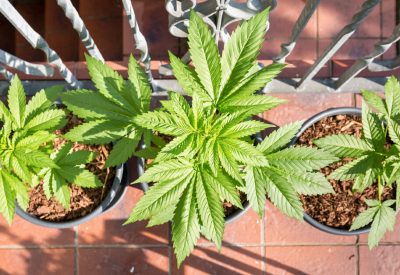Weed, a complicated plant known for its restorative and sporting properties, contains various synthetic mixtures called cannabinoids. Two conspicuous cannabinoids, THCA (tetrahydrocannabinolic corrosive) and CBD (cannabidiol), certainly stand out enough to be noticed for their unmistakable impacts and possible helpful advantages. Understanding their disparities is significant for clients looking for explicit impacts and advantages from pot items.Exploring the best thca brands reveals top-quality products renowned for purity, potency, and consistent effects in the market.
Synthetic Design and Creation:
THCA:
THCA is the forerunner to THC (tetrahydrocannabinol), the essential psychoactive compound in weed. Found in crude, unheated pot plants, THCA doesn’t create inebriating outcomes like THC. Its sub-atomic construction incorporates a carboxylic corrosive gathering, which is eliminated through decarboxylation (warming) to change over THCA into THC.
CBD:
CBD is one more cannabinoid tracked down in pot, known for its non-inebriating properties. Dissimilar to THC, CBD doesn’t cause rapture or disability. Its sub-atomic construction misses the mark on psychoactive components present in THC and THCA, going with it a famous decision for remedial applications.
Psychoactive Impacts:
THCA:
In its crude structure, THCA doesn’t prompt psychoactive impacts. THC only forms after decarboxylation which can be achieved through smoking, vaping or heating, after which THCA transforms to THC and this is the one that brings out the high that is associated with marijuana.
CBD:
CBD is non-psychoactive, meaning it doesn’t change cognizance or cause a “high.” This quality makes CBD items interesting to those looking for remedial advantages without the mental impacts of THC.
Restorative Potential:
THCA:
Investigation into THCA’s potential helpful advantages is continuous yet encouraging. It is accepted to have calming, neuroprotective, and hostile to emetic properties. A few examinations recommend it might assist with overseeing conditions like joint inflammation, queasiness, and neurological issues.
CBD:
CBD is eminent for its remedial adaptability. It has shown potential in mitigating torment, diminishing nervousness, further developing rest quality, and in any event, treating epilepsy. FDA-supported CBD-based prescriptions are accessible for explicit circumstances like epilepsy.
Lawful Status and Accessibility:
THCA:
Because of its non-inebriating nature in crude structure, THCA exists in a lawful hazy situation in numerous locales. It is basically found in new marijuana plants and some crude pot items yet is less normally accessible in disengaged structures.
CBD:
CBD got from hemp (weed with under 0.3% THC) is governmentally legitimate in the US and progressively accessible in different items, including oils, colors, cases, and effective plans. Nonetheless, guidelines change around the world, affecting its accessibility in various districts.
The best thca brandsprioritize organic cultivation, ensuring clean, sustainable sourcing practices and premium cannabinoid content.
